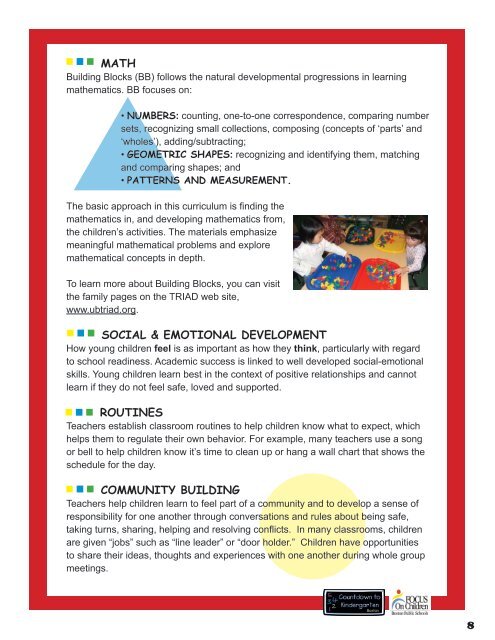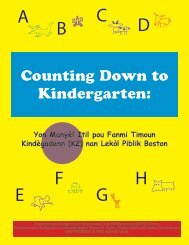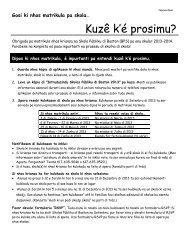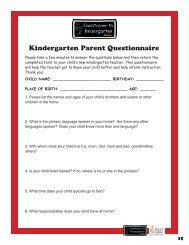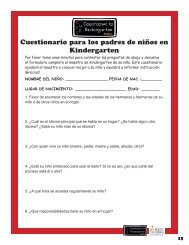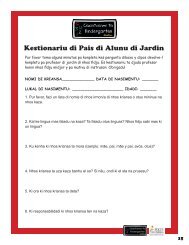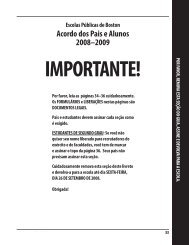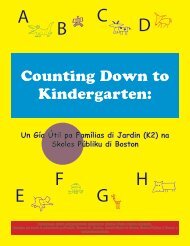Kindergarten Handbook - Countdown to Kindergarten
Kindergarten Handbook - Countdown to Kindergarten
Kindergarten Handbook - Countdown to Kindergarten
You also want an ePaper? Increase the reach of your titles
YUMPU automatically turns print PDFs into web optimized ePapers that Google loves.
MATH<br />
Building Blocks (BB) follows the natural developmental progressions in learning<br />
mathematics. BB focuses on:<br />
• NUMBERS: counting, one-<strong>to</strong>-one correspondence, comparing number<br />
sets, recognizing small collections, composing (concepts of ‘parts’ and<br />
‘wholes’), adding/subtracting;<br />
• GEOMETRIC SHAPES: recognizing and identifying them, matching<br />
and comparing shapes; and<br />
• PATTERNS AND MEASUREMENT.<br />
The basic approach in this curriculum is finding the<br />
mathematics in, and developing mathematics from,<br />
the children’s activities. The materials emphasize<br />
meaningful mathematical problems and explore<br />
mathematical concepts in depth.<br />
To learn more about Building Blocks, you can visit<br />
the family pages on the TRIAD web site,<br />
www.ubtriad.org.<br />
SOCIAL & EMOTIONAL DEVELOPMENT<br />
How young children feel is as important as how they think, particularly with regard<br />
<strong>to</strong> school readiness. Academic success is linked <strong>to</strong> well developed social-emotional<br />
skills. Young children learn best in the context of positive relationships and cannot<br />
learn if they do not feel safe, loved and supported.<br />
ROUTINES<br />
Teachers establish classroom routines <strong>to</strong> help children know what <strong>to</strong> expect, which<br />
helps them <strong>to</strong> regulate their own behavior. For example, many teachers use a song<br />
or bell <strong>to</strong> help children know it’s time <strong>to</strong> clean up or hang a wall chart that shows the<br />
schedule for the day.<br />
COMMUNITY BUILDING<br />
Teachers help children learn <strong>to</strong> feel part of a community and <strong>to</strong> develop a sense of<br />
responsibility for one another through conversations and rules about being safe,<br />
taking turns, sharing, helping and resolving conflicts. In many classrooms, children<br />
are given “jobs” such as “line leader” or “door holder.” Children have opportunities<br />
<strong>to</strong> share their ideas, thoughts and experiences with one another during whole group<br />
meetings.<br />
8


